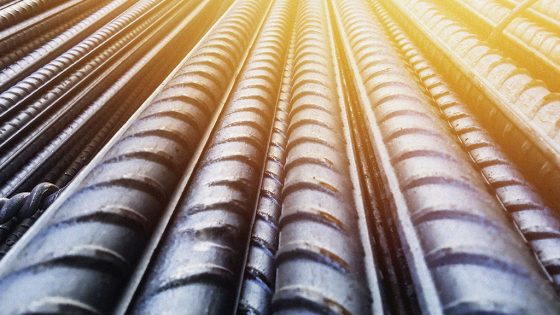A senior Labour MP has called for the government to be “fiercely vigilant” about who invests in UK infrastructure.
Liam Byrne, a former Cabinet minister who now chairs the Business and Trade Committee, warned that “not every cheque is written with our interests in mind”.
The UK government has been to extraordinary lengths in recent days to protect production at British Steel’s Scunthorpe site, which is owned by Chinese firm Jingye.
Parliament was recalled on a Saturday for the first time in decades so MPs could vote to take control of the plant and secure the materials needed to stop furnaces cooling.
Business secretary Jonathan Reynolds had warned that Jingye wanted to “refuse to purchase sufficient raw materials” to keep the plant operational, with implications for the UK constructional steel industry.
He later told Sky News he wouldn’t want another Chinese firm to gain a stake in the sector.
“China is not a market economy as we would be familiar with in our own country, the US or Europe. It is different,” he said. “So it really comes down to which sectors you think there are no problems in. Some are more sensitive than others… I wouldn’t personally bring a Chinese company into our steel sector.”
Labour MP Byrne backed a renewed focus on ownership of critical assets.
“In these new times, we must now become fiercely vigilant about just who is granted the keys to the industries and infrastructure that keep our nation moving,” he insisted.
“Not every investor comes with goodwill in their heart. Not every cheque is written with our interests in mind. Economic security can no longer be an afterthought because some now investing in Britain are seeking more than profit from our nation – they are seeking power over our nation. In these new times, our sovereignty must now be tightly guarded.”
Chinese steelmaker Jingye bought British Steel out of receivership in March 2020, saying it looked forward to “a new illustrious chapter in the history of British steelmaking”.
But, five years later, it announced a consultation on plans to close the UK’s only remaining blast furnaces, which it said lose £700,000 every day.
Rebecca Larkin, head of research at the Construction Products Association, told Construction News the steel plant crisis “highlights the quandary of funding large capital investments, particularly infrastructure.
Private finance, whether it is from a domestic company or a foreign state, will primarily be seeking a financial return and low risk,” she added. Direct funding on the government books is aiming to drive long-term economic growth and employment.
The UK received more than $100bn (£76bn) in investment from China in the last 20 years, according to a report by the American Enterprise Institute.
Some of this has been ploughed into infrastructure assets. For instance, China Investment Corporation owns a tenth of Heathrow Airport Holdings, which runs the west London airport that is eyeing up a third runway.
China General Nuclear Power Group started out with a one-third stake in the vehicle building the £46bn Hinkley Point C scheme in Somerset, although it is understood that the other partner in the project, French energy giant EDF, has since increased its majority interest.
Business and energy security minister Sarah Jones said the UK had a “pragmatic” relationship with China.
“It’s the second largest economy in the world, the fourth largest trading partner that we have, and the trade with China supports hundreds of thousands of jobs in this country,” she explained.
“So we keep a pragmatic view where we cooperate where we can.”
Jones added that “when it comes to infrastructure and overseas investment, you have to meet stringent checks and of course that continues to be the case”.

